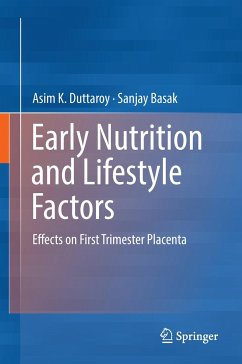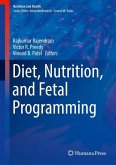This book highlights the impact of nutrients on early placentation processes and their relevance for fetal growth and pregnancy outcome. The role of maternal nutrition on fetal growth and development has been evidenced in many epidemiological studies that included infamous Dutch famine, Helsinki Birth cohort and others. Fetal programming hypothesis states that the nutritional and other environmental conditions under which an individual develops from pre-conception to birth has a major impact on the future health of the newborn child. The developmental environment of the fetus is primarily dependent on two major factors that are maternal nutritional state (excess/low/imbalance) and placental function. Placentation is characterized by the extensive remodeling of the maternal uterine vasculature producing low-resistance blood vessels that facilitate the exchange of nutrients and wastes between the mother and the fetus. Cellular and molecular mechanisms involved in human placental blood vessel formation, which are now well established, are discussed.
Bitte wählen Sie Ihr Anliegen aus.
Rechnungen
Retourenschein anfordern
Bestellstatus
Storno








